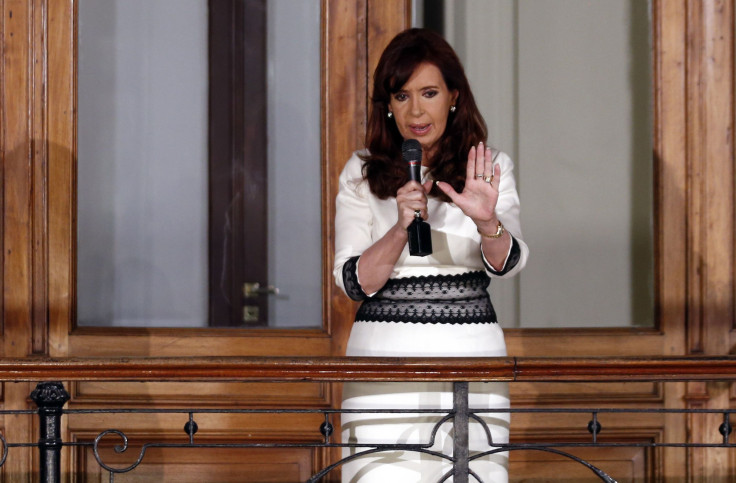Prosecutor Who Accused Argentine President Of Terror Coverup Found Dead

(Reuters) - The Argentine prosecutor who accused President Cristina Fernandez de Kirchner of orchestrating a coverup in the investigation of Iran over the 1994 bombing of a Jewish community center has been found dead in his Buenos Aires apartment, authorities said on Monday.
Alberto Nisman, who had been investigating into the blast at the city's AMIA Jewish community center that killed 85 people, said last Wednesday that Fernandez had opened a secret back channel to a group of Iranians suspected of planting the bomb. He said the scheme intended to clear the suspects so Argentina could start swapping grains for much-needed oil from Iran, which denies any connection with the bombing.
"Alberto Nisman was found dead on Sunday night in his flat on the 13th floor of the tower Le Parc, in the Buenos Aires district of Puerto Madero," the Argentine Security Ministry said in a statement.
The ministry said Nisman's security guards had alerted his mother on Sunday afternoon that he was not answering his front door or phone, and the Sunday papers were still on his doorstep.
Nisman's mother found the door to his apartment locked from the inside and got a locksmith to open it. She found her son's body on the floor of the bathroom, and called the police.
"Next to Nisman's body ... a 22-calibre handgun was found, together with a bullet casing," the ministry statement said.
Nisman, who local media said was 51, had been due to take part in a closed-door hearing in parliament on Monday to explain his accusations against the president.
"Everything indicates it was a suicide," Secretary of National Security Sergio Berni told local television. "We have to see if gunpowder is found on his hands."
By mid-morning the autopsy had begun, with the official cause of death expected to be announced over the days ahead.
"He was alone in the apartment," prosecutor Viviana Fein told reporters. "There are no witnesses."
The Clarin daily reported just a few days earlier that Nisman had told the newspaper, "I could end up dead because of this." Nisman, in a separate TV interview, had also been considering increasing his security detail. The judge handling the case of the 1994 bombing criticized Nisman late last week for taking it upon himself to "initiate an investigation without judicial control" and said the evidence he put forth was flawed.
Cabinet Chief Jorge Capitanich had said Nisman's allegations were "crazy, absurd, illogical, irrational, ridiculous, unconstitutional."
Argentine courts have accused Iran of sponsoring the 1994 bombing, a charge Tehran denies. In 2007, Argentine authorities secured Interpol arrest warrants for five Iranians and a Lebanese over the bombing.
In 2013, Fernandez tried to form a "truth commission" with Iran to jointly investigate. She said at the time that the pact would reactivate the inquiry, but Israel and Jewish groups said the move threatened to derail criminal prosecution of the case.
The truth commission pact was struck down by an Argentine court and never ratified by Iran.
Nisman had said the commission was intended to help get the arrest warrants dropped against the Iranian suspects as a step toward normalizing relations and opening the door to obtaining Iranian oil needed to help close Argentina's $7 billion per year energy deficit.
Israel's Foreign Ministry issued a statement mourning Nisman's death and urging Argentine authorities to carry on his work.
© Copyright IBTimes 2025. All rights reserved.





















